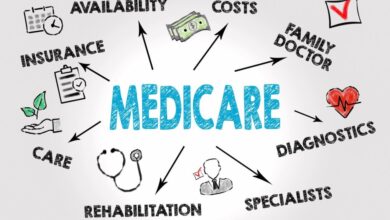5 Key Advantages of Orthopedic EHR Systems in Healthcare

Orthopedic EHRs offer many benefits as they help providers give better care to patients and automate different tasks. EHR systems also enable practice owners to share information remotely with one another and in real-time.
The systems are highly customizable, reducing documentation and data entry responsibilities and allowing orthopedics more time to care for their patients.
Here are the key advantages of orthopedic EHR systems in healthcare:
1. Improved Patient Care
EHR systems provide orthopedics with accurate and comprehensive patient information. With the right system, you can provide patients with better diagnoses and improved treatment decisions. Orthopedic EHR systems can help improve patient safety by minimizing the likelihood of making medical errors such as duplicate tests and medication mistakes.
As a provider, you can get real-time patient information, allowing you to make timely and accurate diagnoses and treatments. EHR systems help to increase efficiency as they streamline processes which help to minimize administrative burdens.
You can have more time to focus on providing quality patient care. Orthopedics can also have an easier time communicating and collaborating, enhancing patient care. Patients can access portals to check their medical information, such as imaging results, diagnosis, medications, etc.
They can also share notes, exchange messages, and engage in video calls with their providers. Both patients and orthopedics can access the portal to keep track of an individual’s progress with treatment.
2. Enhanced Imagery Management
Orthopedics is a healthcare specialty that depends mainly on imagery for diagnostic purposes. Imagery helps providers track the effectiveness of treatment. EHR systems make it easy for orthopedics to attach images to patient records. It helps avoid calling and waiting for the imaging department to bring pictures to your office in person or send them via email.
Your staff can access the imagery of a patient digitally using an EHR system. The sooner you get the digital imagery, the faster you can treat the problem. Ease of access to imagery is also beneficial when you consider how often you send patient details to other physicians when you need a second opinion.
3. Increased Efficiency
EHR allows orthopedics to offer a more accurate diagnosis and can save time. They help speed up office visits and appointments without compromising a patient-centered approach. Orthopedics can have extra time to see more patients daily.
EHRs come with built-in templates that you can use to document common patient complaints and issues. These templates can be tailored to your specialty or customized to match your needs. E-prescribing has also become a standard practice for many healthcare organizations.
Providers can send prescriptions to the pharmacy electronically. EHR systems can also automatically check for possible drug allergies or drug-to-drug interactions that may happen depending on a patient’s diagnosis and medication.
4. Increased Revenue
The goal of any healthcare organization is maximizing its revenue. EHRs offer billing tools to manage payment and income. Claims can be scrubbed of coding errors and mistakes automatically, which helps to avoid rejections. These tools may increase acceptance rates at the first time for insurance claims which helps to hasten reimbursements without delayed or lost claims.
EHR systems help practice owners document every key detail of a patient’s appointment, making it easy to offer evidence about a person’s claim. Practices that use and implement EHR systems can benefit from the monetary incentives that the government provides.
You may be able to earn money for implementing a certified system and adhering to meaningful use standards. EHR solutions are designed to assist healthcare providers in meeting guidelines and being ready for upcoming mandates.
5. Improved Mobility and Accessibility
You can view patient records from anywhere and anytime using a cloud-based orthopedic EHR system. With a secure internet connection, the system provides more accessibility and mobility even when you’re far from the office.
EHR interoperability allows orthopedics to share data seamlessly. Patient information can be shared between providers without carrying records and hand-copying files to each specialist. Cloud-based EHR systems can merge patient populations if you join group practices or an accountable care organization.
Choose a Reliable Orthopedic EHR System
Choose an orthopedic EHR system to enhance your practice performance and patient outcomes. Find an orthopedic-specific solution that can simplify everything for your practice so that you can focus on providing quality care to our patients. Prioritize a system that can be customized to match your preferences with template features designed for orthopedics.




